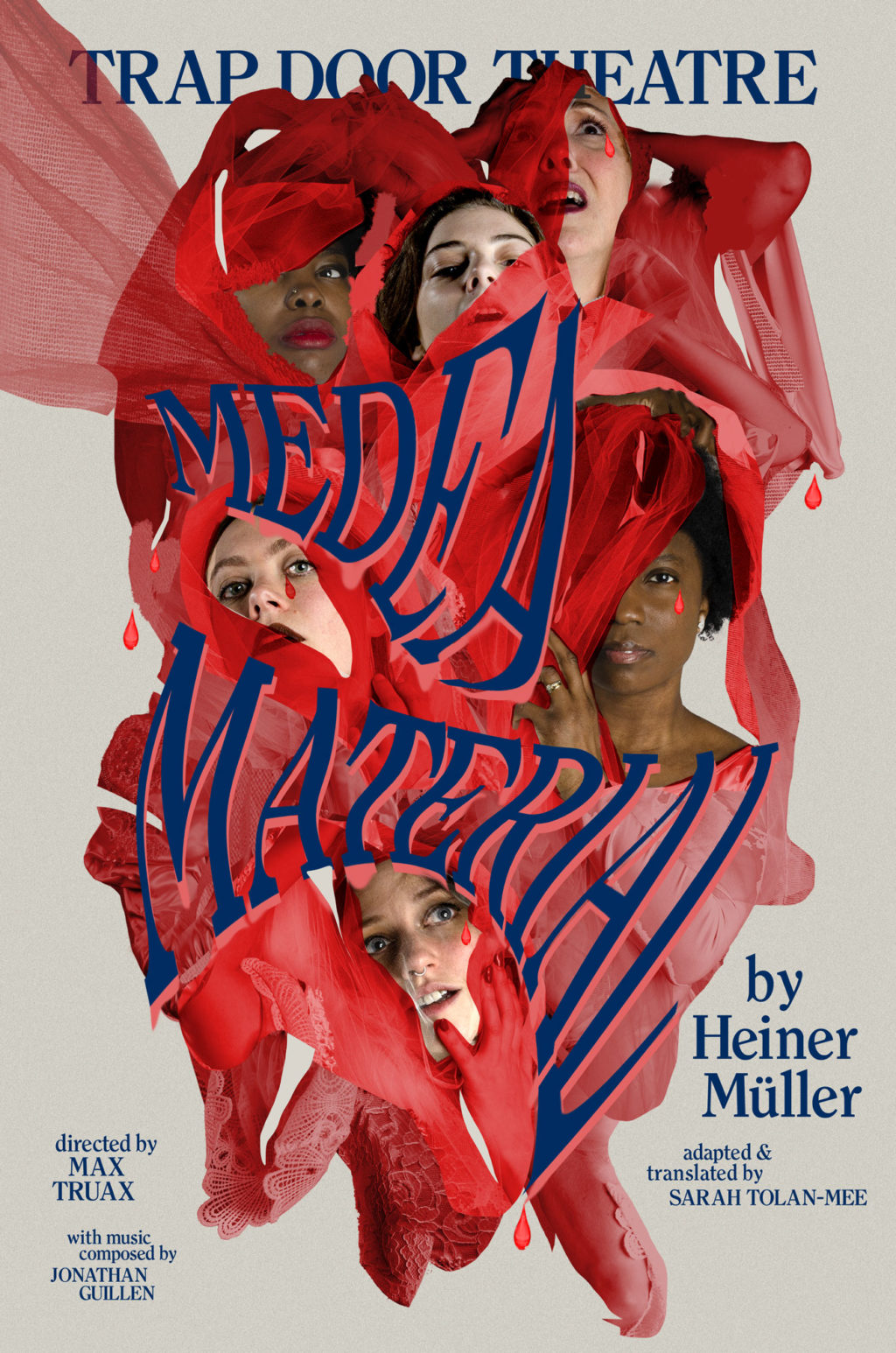
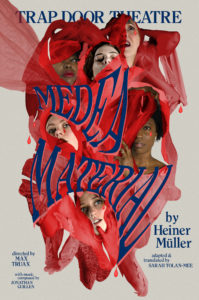 [rating=5] Euripides’s Medea is a tragic protagonist who is difficult to even call a “hero” but whose pain and fury has remained a source of fascination for thousands of years. In every age people feel drawn to try to make sense of her as a contemporary figure, and so it is with German playwright Heiner Müller’s Medea Material. The 1982 fragmentary play is a prime example of Eastern European theatricality. With a story well-known enough that the plot can be told clearly without needing to be dwelt upon, Medea Material is more like a series of impressions detailing Medea and Jason’s state of mind than a straightforward narrative. Trap Door veteran director Max Truax returns for the new production, which heavily features music, movement, and an ensemble cast to accompany a poetic translation by Sarah Tolan-Mee that takes another stab at what, exactly, makes Medea tick.
[rating=5] Euripides’s Medea is a tragic protagonist who is difficult to even call a “hero” but whose pain and fury has remained a source of fascination for thousands of years. In every age people feel drawn to try to make sense of her as a contemporary figure, and so it is with German playwright Heiner Müller’s Medea Material. The 1982 fragmentary play is a prime example of Eastern European theatricality. With a story well-known enough that the plot can be told clearly without needing to be dwelt upon, Medea Material is more like a series of impressions detailing Medea and Jason’s state of mind than a straightforward narrative. Trap Door veteran director Max Truax returns for the new production, which heavily features music, movement, and an ensemble cast to accompany a poetic translation by Sarah Tolan-Mee that takes another stab at what, exactly, makes Medea tick.
“This tree will not grow over me,” Medea vows. There are several she could be referring to, and each of the six actresses say it, as though it is something she has remarked many times in separate places, but it seems she is currently referring to the tree containing the wreck of the Argo. She has arrived on a new shore exhausted, stubborn, and despite everything that has apparently already transpired, still very lustful for Jason. He had offered her lipstick in a ring box instead of marriage; she took it anyway. His lust for her cooled quickly if it had ever been real, while she ached for him after just a few days apart. Medea describes her new environment in terms of sex, reproduction, trash, and bodily corruption, and it is clear that in this version, she is seeing her mind reflected in the devastation of Colchis, the country she forsook. That wasn’t the last time that she burnt down her family and started over, and Corinth wouldn’t be, either.
Casting six actresses as Medea (Venice Averyheart, Alexis DawTyne, Catrina Evans, Emily Lotspeich, Laura Nelson, and Emily Nichelson) and three actors as Jason (Miguel Long, Steven Schaeffer, and Keith Surney) allows them to function as their own chorus. Their experiences are very internal anyway, as the two characters don’t do much genuine communicating with each other. Jonathan Guillen’s original music and Rachel Sypniewski’s costume designs create a dazzling golden haze for Medea and Jason’s whirlwind romance, one that is hypnotic enough for its effect to linger for the rest of the show. Director Max Truax has found a variety of simple props for the characters to use to communicate subtext in a way that, to this reviewer, feel intuitive. Each of the actors has a distinct energy while feeling harmonized with the others playing the same character. It’s as though there are slight differences in how Medea and Jason could have interacted, but being themselves, only ever one likely conclusion.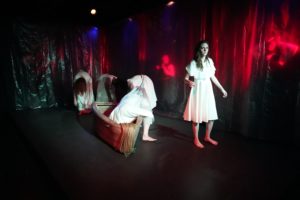
One of Müller’s most distinctive contributions to this retelling, besides the fragmentary form, is his focus on large-scale conflict. Mysterious mass violence has occurred in Colchis that blends into and informs the more personalized violence Medea perpetrates in Corinth. When Jason finally gives an account of himself late in the play, we learn that he suffers from PTSD. Unlike Medea, Jason has little divine ancestry and no native supernatural abilities other than his enormous talent for bluffing, and the power dynamic between them isn’t quite as simple as it might seem. It’s all the more gripping for that, though. Truax’s production integrates music and visuals continuously over a lean seventy minutes to produce the kind of abstract media experience that can only be found in live theatre. There are many versions of the story of Medea and Jason, but this is one that is unique to the ephemeral experience of the stage.
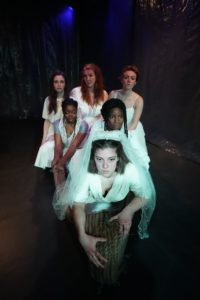 Medea Material will continue at Trap Door Theatre, 1655 W Cortland Ave, Chicago, thru June 4, at the following times:
Medea Material will continue at Trap Door Theatre, 1655 W Cortland Ave, Chicago, thru June 4, at the following times:
Thursdays: 8:00 pm
Fridays: 8:00 pm
Saturdays: 8:00 pm
Sundays: 7:00 pm
Running time is seventy minutes with no intermission.
Tickets are $25 with 2 for 1 admission on Thursdays. Visit Trap Door Theatre or call 773-384-0494 or email boxofficetrapdoor@gmail.com
To see what others are saying, go to Theatre in Chicago and click “Medea Material.”


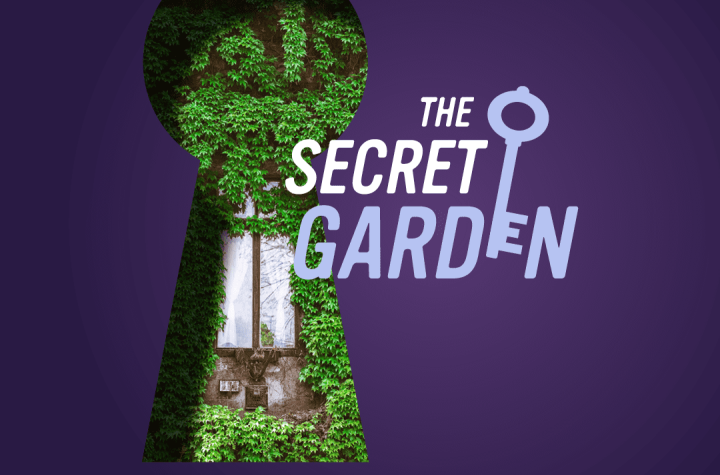
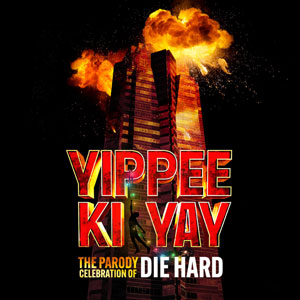

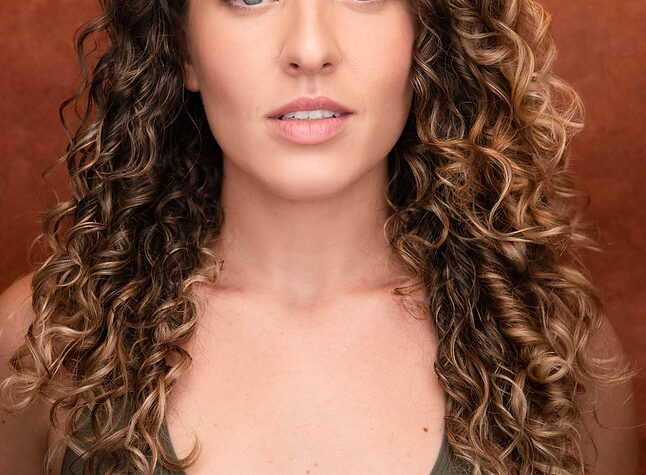
More Stories
“The Secret Garden”
“Yippee Ki Yay” The Parody of Die Hard reviewed by Frank Meccia
“Throbbin Wood” reviewed by Julia W. Rath